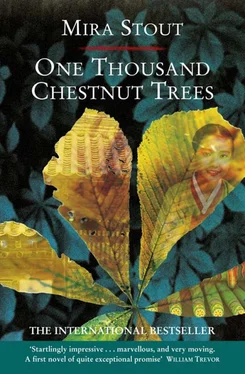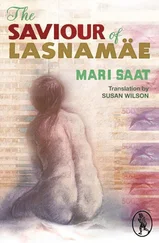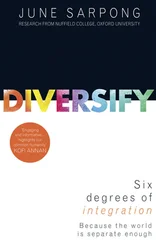1 ...7 8 9 11 12 13 ...18 This seemed like a good moment to leave. Wen, still trouserless, and Tommy escorted us downstairs in the elevator, and Laura – nursing her singed lock of hair – and I got into a cab and went home. We never saw them again.
As I lay on my mattress trying to get to sleep that night, my head throbbed. I was terribly thirsty, but refused to get a glass of water, having just drunk an unbelievable amount of water only moments before. I was too lazy to get up again, and could not guarantee a successful reprise of going up and down the ladder. It seemed unfair to have contracted a hangover while still technically drunk.
The garbled mess of the day circulated through my head like hard lumps of batter through an eggbeater, gradually growing smaller. Each diminishing thought was accompanied by increasing feelings of disgust, and surprising sadness. Oliver’s impending departure and Harry’s retreat formed one lump of ambivalent, unmelting loss. Laura’s troubled, sleeping presence nearby did not lessen the loneliness which seemed to have welled up from beneath the darkened furniture and flooded the room.
Was anybody else’s life so disjointed? If so, didn’t they worry about it? Perhaps this was just the normal texture of postgraduate life in New York at the end of a fractured, narcissistic decade. Even couched in the sedative language of Newsweek , the condition hurt. The disjointed bits had spikes, and the missing piece, whatever it was, had left behind a canyon of emptiness around which I had organized my life quite well.
At first I thought the missing thing might be Love, but wasn’t sure. Was Love so big?
Perhaps the force itself was still mighty, but its public image had been diminished by the same hype as less important things; it had been used to sell economy cars, diet soft drinks, untrue songs, banal movies, and anti-wrinkle creams. Although cheapened, private Love still exacted the same high price.
Dull thoughts followed, so boring that they slipped from beneath me, half-formed. I found myself thinking again of Korea.
The roar of traffic held me in web of continuous noise. The light of the cinema marquee across the street flooded beneath my closed lids and strained my eyes, despite their being closed. Thoughts racing, I longed for rest, for peace.
Often, when my mind tired of its ineffectual wonderings, I would think of cool, green leaves and imagine fresh, verdant smells. Fanned, rustling leaves enfolded me. The woods were so deep I couldn’t tell if it was night or day. I lay my head on some moss, and to the sound of rushing leaves, eventually I fell asleep.
Cardboard boxes and canvases slid across the back of the rented station wagon as the car’s wide hips swung around the corners of Route 9. Driving up the Interstate earlier, my spirits felt progressively lighter the farther from New York I sped; Bridgeport, New Haven, Hartford, Holyoke, Northampton, Greenfield, and finally Exit 3 to Starksboro. The names of the towns on these green-and-white signs were tattooed in my memory; their familiar sing-song syllables, like nursery rhymes, prompting the mixed emotions of childhood, with its maddening dreads and comforts. The landscape growing steeper and wilder, I floored the accelerator up the final hill, impatient to arrive.
The next morning, sitting at the dining-room window, I gazed out at the high clouds and pine branches tossing in the March wind, drinking coffee from my preferred blue-willow cup and saucer. I smiled at the sight of my mother, weeding as usual, at the edge of the window frame. She would never run out of weeds in Vermont. For years, she had tried to grow tiger lilies, her favourites, by the front steps, but they always died. Resigned to the cantankerousness of the Vermont soil, my mother discovered an unusual answer. She made a garden out of the weeds themselves: cultivating the prettiest, and uprooting the nastier-looking ones. Growing up, I had found this practice – as well as making monster bonsai out of scots pines – rather embarrassing, but now thought it quite inventive. Looking at the scots pine-bonsai next to her, now much taller, I thought of Hong-do.
After quite a lot of thinking and worrying, I had moved out of New York and bought a one-way ticket to Seoul. It sounds a bit melodramatic, but the open-ended ticket had more to do with ignorance of how long the trip would take than with a desire to stay forever. It almost felt as if I were going to Korea against my will. Although no one was forcing me to go, thoughts of going to Seoul kept returning insistently during quiet moments, creating a pressure impossible to ignore.
Despite being unhappy about giving up my studio, it felt likely that if I didn’t go now, I might easily resist it later. The paintings I’d been working on were terrible anyway – a series of self-conscious fauve fire-escapes. They were leading nowhere at all, and a break could only help. The exact purpose of this trip was fuzzy, but its vagueness seemed appropriate. While it had seemed so small at the time, my uncle’s visit had opened up something unaccountably big. Clearly, going to Korea would be the most direct way of finding out what the nature of this something might be. Hong-do sent a brief note welcoming my visit.
My mother had been very surprised when told of my plan over the phone, but also seemed pleased. Being reserved, it was sometimes quite difficult to tell when she approved of things. I’d decided to try and learn some Korean, but unfortunately, my mother would be away on a recital tour for most of that short interval, so I was unable to learn from, and practise on, her. Instead, I brought with me a Linguaphone Korean language course purchased in the city: one of those instruct-yourself kits, complete with cassettes and a couple of bewildering booklets designed to simplify and decode the cryptic Hangul characters.
Nearly blue with frustration, I sat in my old bedroom with the headphones on, and tried again and again to halt the tape in the spot where the frail thread of comprehensible sound became a locomotive of complete gibberish. I studied the Korean alphabet chart and tried to think in ideograms rather than in individual letters. The concentration required was strenuous in the extreme; like trying to cut something by first melting down a knife, recasting it into a pair of scissors and waiting for the metal to cool each time you needed to cut with it; the scissors turning back into a knife as soon as the immediate task was complete.
‘Annyong haseyo. Annyong-i kyeseyo …’ I repeated over and over. Hangul required six syllables simply to say ‘goodbye’. King Sejong, inventor of the Korean language, promised that it would take only a day or two for his subjects to learn it, but he must have been flattering his countrymen. The difficulty of following Hangul on the earphones was hallucinatory. As the grammatical and conceptual differences between English and Hangul widened further, my metaphorical scissors shrank. It was like trying to penetrate a concrete wall with a safety pin. It filled me with indignation and disbelief. For the first time, I began to get a measure of the formidable barrier my mother had overcome.
Those few weeks were spent painting during the day, cooking for my father, and leafing through Western books about Korea in the evenings. Besides needing to know some facts, I craved a tangible definition of Koreanness. The books’ indexes yielded such dry characteristics as a) the sanctity of hierarchical Confucian family and social relationships; b) ancestor-worship; c) advanced scholarship and artistic achievement; d) self-reliance; e) self-sacrifice; f) pacifism; g) harmony with nature. Although not unhelpful, the words failed to construct a convincing picture. It was like trying to understand the soul of a missing person from police forensic reports and identikit features.
Читать дальше












